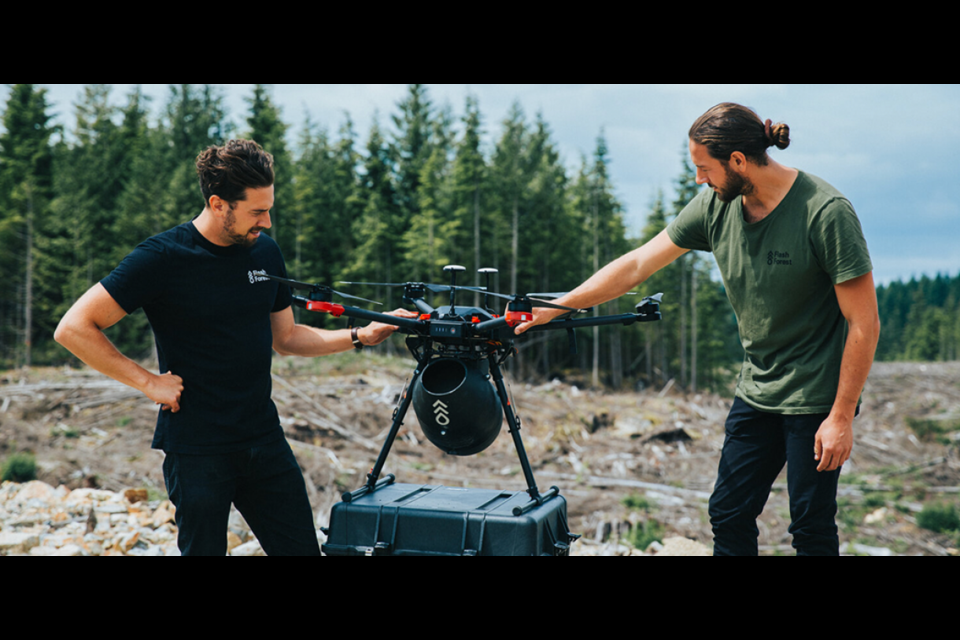TORONTO — The federal government is contributing $1.3 million to advance the work of a reforestation company that has perfected a way to use drones for planting trees.
An area burned by a large fire north of Kenora last year is one of the demonstration sites for the process developed by Toronto-based Flash Forest.
The company expects to plant over one million trees in Canada with drones way over the next two years.
Natural Resources Canada said the technique developed by the company involves drones, propietary biological seed pods, and robotic process automation to plant in some of the most severe forest fire sites in the country.
The sites will be monitored for germination success to compare the success of this method against traditional tree-planting techniques.
Flash Forest's method is projected to be at least 10 times faster, and significantly cheaper, than the labour-intensive use of shovels.
Company CEO Bryce Jones said the partnership with the government "will allow us to double down on our aerial reforestation efforts and ensure Canadian forests remain an integral part of the global fight against climate change."
The technology has been profiled in publications such as the Washington Post and Forbes magazine.
No one at Flash Forest was immediately available Friday for comment.
But in an interview with the Post last year, Jones said he founded the company with his brother and a university friend after they saw the effects of widespread deforestation on Vancouver Island where they were going to school.
In a YouTube video, he said he started the company in order to have as big an impact as possible on the reduction of carbon emissions into the atmosphere.
"This is the most scalable and fastest way that I could think of doing it," he said. "Our goal is to plant one billion trees by 2028."
Jones said planting from the air allows reforestation in areas that would be difficult to access on the ground.
Seed pods contained in a 500-capacity hopper mounted to a drone can either be dropped from above the forest canopy or "fired" from near the forest floor using a gun-like device.
Once they are activated by moisture, the pods expand to create an ideal cavity within which the seeds can germinate and grow.
The technology is being validated in parts of the 200,000 hectares of forest that were destroyed by Kenora district fire # 51 in 2021, and in other areas of Canada.
Flash Forest plans to deploy it in other areas of the globe as well, including the Brazilian rainforest.
